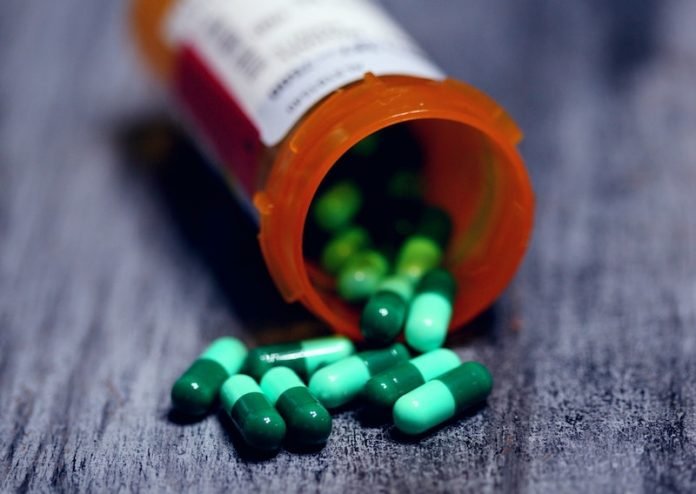
In a new study, researchers found that three common antihistamine medications could inhibit infection of cells by the coronavirus that causes COVID-19.
The drugs—hydroxyzine, diphenhydramine and azelastine—showed direct, strong antiviral effects on the SARS-CoV-2 virus.
Hydroxyzine, sold as Atarax, and the nasal spray azelastine are prescription medications while diphenhydramine is sold over-the-counter as Benadryl, treatment for cold and allergy symptoms.
The findings may support the launch of a clinical trial to see whether the specific antihistamines can treat or even prevent COVID-19 in humans
The research was conducted by a team at the University of Florida Health.
In the study, the team set out to identify approved drugs that can interfere with the way the SARS-CoV-2 virus binds to cells.
They found that the usage of specific drugs was linked to a reduced rate of testing positive for SARS-CoV-2, the virus that causes COVID-19.
They then found that these specific drugs exhibited direct antiviral activity against SARS-CoV-2 in the lab.
To establish their findings, the team focused on angiotensin-converting enzyme-2, or ACE2, a “gateway” protein the virus uses to invade human cells.
They analyzed the medical records of nearly a quarter-million California patients.
People age 61 and older who had used certain antihistamines were less likely to test positive for the SARS-CoV-2 virus than those who did not take the medications, the researchers found.
Next, the researchers tested this group of antihistamines for their ability to inhibit the coronavirus in a combination of human and primate cells.
Three of the drugs—hydroxyzine, diphenhydramine and azelastine—showed direct, statistically significant antiviral effects on the SARS-CoV-2 virus.
Hydroxyzine, sold as Atarax, and the nasal spray azelastine are prescription medications while diphenhydramine is sold over-the-counter as Benadryl, treatment for cold and allergy symptoms.
Among the three medications, azelastine was found to inhibit the SARS-CoV-2 virus at a dose that was smaller than the amount prescribed as a nasal spray.
The other two antihistamines required higher drug concentrations than currently recommended dosing levels to achieve an antiviral activity in cells.
While the findings are encouraging, the team cautions against self-medicating with antihistamines as COVID-19 prevention or treatment.
So-called “off-label” use of medications should only take place after a detailed consultation with a physician.
Clinical trials will be necessary to establish the drugs’ effectiveness in prevention, early treatment, and as a secondary therapy for severe COVID-19.
One author of the study is Leah Reznikov, Ph.D., an assistant professor of physiological sciences.
The study is published in Biochemical and Biophysical Research Communications.
Copyright © 2020 Knowridge Science Report. All rights reserved.



